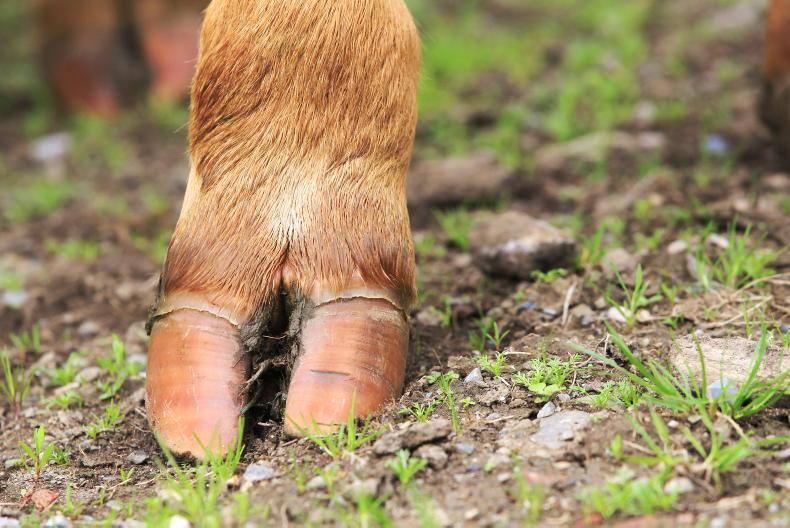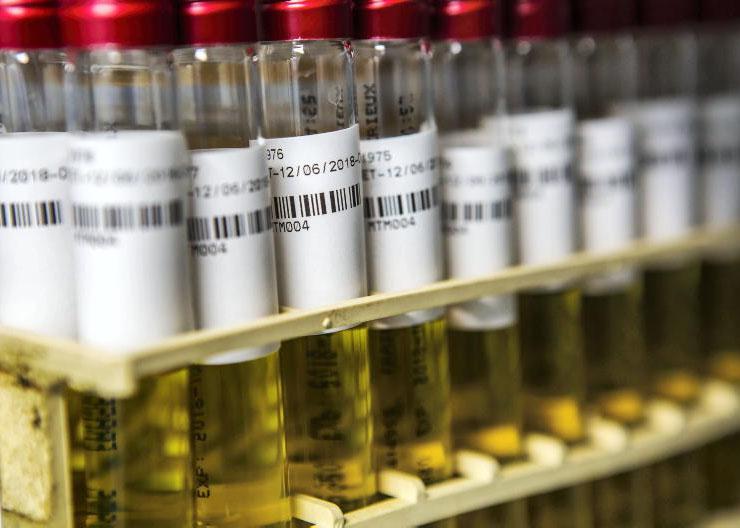Agriculture Minister Andrew Muir has “serious concerns” about the budget that will be available for farm schemes in NI from 2025 onwards.
“The current package for funding comes to a conclusion at the end of March next year. I have a real concern about what the future could be for the earmarked agricultural budget,” he said.
In an interview with the Irish Farmers Journal, Minister Muir pointed out that financial budgets are extremely tight across all UK government departments at present.
On top of that, the governing Labour Party had no clear commitment to agricultural funding in its manifesto before last month’s general election.
The issue appears to be high up Minister Muir’s agenda and he is actively pressing government ministers and civil servants in London about funding for NI agricultural policy.
“There are two things I would like to see. The budget should be indexed in line with inflation and there should be a separate fund for capital investment on farms, which in my view would be the just transition fund for agriculture [to help meet future climate targets].”
“I think it’s absolutely critical that we invest in agriculture. We are in a period of unprecedented change and extreme uncertainty which causes worry for people.
“We need to be able to set ourselves on a more stable path going forward and part of that is about the funding that is required,” Minister Muir said.
New schemes
The lack of clarity about the agricultural budget is also making it difficult for DAERA to plan for new farm schemes in NI.
The new area-based Farm Sustainability Payment is to effectively replace the current Basic Payment Scheme from next year onwards.
The Beef Carbon Reduction Scheme opened earlier this year, the Suckler Cow Scheme is to start in January 2025, and the Farming With Nature package is to be gradually rolled out from next year onwards.
“All agricultural budget from April is caveated and is subject to budget. The sooner we can get a bit of certainty on that the better,” Minister Muir said.
The Alliance MLA is also concerned about the difference in support for farmers on either side of the Irish border, especially if funding for NI farmers is not increased.
With new schemes and extra funding being made available in the Republic of Ireland, that gap in support “will become much wider”.
“I have a concern about that because there is potentially going to be an extreme disparity,” he said.
New steps on bovine TB in the autumn
A review into bovine TB policy in NI is almost complete and the first measures that will stem from it will be taken in the autumn, according to DAERA Minister Andrew Muir.
“I hope to make announcements about this in October or November. There will be a number of actions to outline. Some things will be able to move at a quicker pace than others,” he said.
The Alliance MLA said the current rate of TB in NI is not sustainable, with the disease impacting government budgets, animal welfare and the mental health of farming families.
“Everywhere I go, this is raised with me. When people tell me their personal stories, it stays with me,” he said.
Minister Muir confirmed that the contentious issue of wildlife intervention will be covered in the ongoing DAERA review.
His party opposed DAERA’s previous proposal of a non-selective cull of badgers in TB hotspot areas, so is that off the table now that an Alliance MLA is in charge?
“I ask people not to judge a book by its cover. I came here with a very fresh approach. I am hopefully surprising people about how much I am going to stretch myself to deliver a sustainable future for agriculture.
“We will make announcements on this in the time ahead,” he responded.
A separate review is also underway into the governance of TB eradication in NI, which mainly focuses on the role of the independent body known as the TB Eradication Partnership (TBEP).
After five years in post, the term of office for TBEP expired at the end of 2023 but no replacement was put in place. Why was that? Did DAERA not want TBEP marking its homework?
“I am not wary of any independent body marking my homework. I strongly believe in independence and scrutiny,” Minister Muir responded.
Diffuse pollution is key water quality issue
Isolated incidents of slurry spills from farms which lead to significant fish kills is not the main water quality problem in NI, Agriculture Minister Andrew Muir has said.
Instead, the minister said it is diffuse pollution which leads to most phosphorus and nitrogen entering in NI waterways.
This is where there is a slow release of nutrients from farmland that is above optimum levels of soil fertility across a river catchment.
The NI-wide soil sampling initiative, known as the Soil Nutrient Health Scheme, aims to address this by giving farmers accurate information about the nutrient status of their land.
Minister Muir reiterated that DAERA will “respect” the privacy rules about how soil analysis results from the scheme can be used.
“It is for farmers to use to guide their own decisions. It is never going to be used for enforcement,” he said.
“The whole focus of interventions around Lough Neagh and water quality is about education and incentivisation because, once we are into enforcement, then we have all failed,” he added.
A range of proposals for improving water quality are to be included in a review of the Nutrients Action Programme later this year.
This includes a new fertiliser database which will record details of all fertiliser moving from suppliers to farmers, and a ban on phosphate fertiliser use in grassland if there is no evidence of a deficiency in soils.
“It will save farmers money. There are examples of farmers who have been purchasing phosphate fertiliser, but they don’t need it,” Minister Muir said.
Closed period
Farmers often argue that more flexibility should be given with slurry spreading so that applications can be allowed during the closed period if ground conditions are suitable.
However, Minister Muir said a relaxation of slurry rules “is not on my agenda” at present due to the ongoing water quality problems in NI.
“If we work together and drive environmental improvements, then that opens the opportunity for further interventions and flexibilities,” he added.
DAERA Minister says he ‘loves the job’
Andrew Muir had no farming experience before becoming DAERA Minister, but with six months done in the job, he is clearly well read up on his brief.
The Alliance MLA spoke to the Irish Farmers Journal about agricultural issues for almost an hour on Tuesday without using notes or consulting DAERA officials.
“I absolutely love this job. The thing that really gives me satisfaction is the people that I meet. The case that farmers make to me about different issues is done respectfully and coherently.
“Ultimately what I am dealing with is people’s livelihoods and that weighs on me. This is a very different job to any other minister in the NI Executive,” he said.
Arguably, one of the biggest stories from his tenure so far is that Minister Muir has not made significant changes to plans for new farm schemes in NI.
It is significant given that most of these proposals were originally put in motion by former Agriculture Minister Edwin Poots of the DUP.
“I am a pragmatic person. I am also not precious because I believe in doing what’s right,” Minister Muir said in response.
“There is a lot of good work that has been done in the past and just because it’s from a previous minister that doesn’t devalue it,” he added.










SHARING OPTIONS